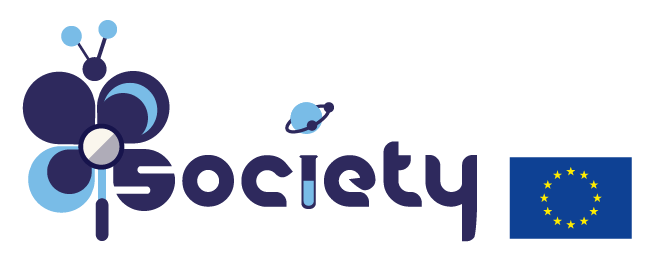‘SOGICA – Sexual Orientation and Gender Identity Claims of Asylum: A European human rights challenge’ was a four-year project funded by a Starting Grant of the European Research Council - ERC (grant agreement No. 677693) involving an international multidisciplinary team of researchers: Carmelo Danisi (Unibo & Sussex), Moira Dustin (Sussex), Nuno Ferreira (Principal Investigator, Sussex) and Nina Held (Salford & Sussex). Based in the School of Law at the University of Sussex (UK), SOGICA set out to produce the necessary evidence base for a more just and humane asylum process for individuals seeking refuge in Europe on the basis of their sexual orientation and gender identity (SOGI). It is the first European-wide research of this kind.
The project’s primary aims were to explore the social and legal experiences of SOGI asylum claimants across Europe and to determine how European asylum systems can treat SOGI asylum claims more fairly. Besides exploring the European Union (EU) and Council of Europe (CoE) frameworks, SOGICA focused on three countries as case studies: Germany, Italy and the UK. In relation to all these frameworks, the link between the legal and social experiences of SOGI asylum claimants was stressed.
Considering the frequently unfair treatment of SOGI asylum claims, the disproportionately high refusal rate, and the particular difficulties in establishing SOGI claims (in particular concerning credibility, relocation and discretion), the project set out to address the following questions:
- How have European countries incorporated SOGI related human rights violations into asylum policies?
- How do these violations constitute, and how are they seen to constitute, causes of asylum requests?
- How are SOGI related asylum claims legally adjudicated at domestic, EU and CoE levels?
- Does the legal adjudication of SOGI related asylum claims influence claimants’ identity and integration in the host society and community of fellow nationals/ethnic group? If so, how?
- How can domestic, EU and CoE legal frameworks adjudicate SOGI related asylum claims more fairly?
The project’s value lays in the activities that were carried out and methodology that was followed.
The project adopted a comparative and empirical approach that is intersectional and interdisciplinary (socio-legal). As theoretical frameworks, it used human rights, feminist and queer studies. It included also a fieldwork. Given the paucity of both quantitative and qualitative data in relation to SOGI claims, the research carried out in the field by the SOGICA team members in each country was of paramount importance as a game changer in ensuring higher standards of protection to SOGI claimants and refugees. Hence, in addition to the documentary analysis of – inter alia – international treaties and case law, European and domestic legislation and case-law, policy documents, NGO reports, and case files, the analysis was based on: non-participant contextual observations (in the form of – direct and indirect – observations of SOGI asylum judicial hearings); interviews with policy-makers, decision-makers, members of the judiciary, legal representatives, NGO activists and SOGI asylum claimants; focus-groups with SOGI asylum claimants.
To know more about this multi-year investigation and hear the voice of three people who claimed asylum on SOGI grounds, you can start watching the four videos that have been realised by SOGICA (with the support of the media team of the University of Sussex):
- the SOGICA project team video, through which prof. Nuno Ferreira (the SOGICA Principal Investigator) and SOGICA researchers (Carmelo Danisi, Moira Dustin and Nina Held) explain what the project is about and why it matters, alongside contributions from Caroline Lucas (Member of the UK Parliament) about why SOGI asylum should be a concern for everyone - watch it out!
- the SOGICA Italian video, with contributions from Mazen - activist in Italy, Cristina - representative of the SOGIESC unit of UNHCR Italy and Carmelo - SOGICA researcher responsible for the Italian case study and the human rights legal framework - watch it out!
- the SOGICA UK video, with contributions from ‘Angel’ - asylum claimant, Caroline Lucas - UK MP and Moira - responsible for the UK case study and the feminist theoretical framework - watch it out!
- the SOGICA German video, with contributions from Anbid - SOGICA Advisory Board member - and Nina - SOGICA researcher responsible for the German case study and the queer theoretical framework - watch it out!
The team also launched a podcast with Christina's testimony with the sponsorship of One Pump Court chambers.
To know more about all outcomes of the SOGICA project, you can download the policy recommendations here available (just on your right, above) or visit:
- the publications and the events pages
- our final Recommendations-dedicated webpages, which are addressed to the European Union, Germany, Italy and the United Kingdom
- the proceedings of our final Conference
- our life stories page
- our database, which includes links to legal cases, research and other SOGICA related resources (it is possible to search by keyword, date, category, source of the material, subject, place of publication or by a combination of these fields).
Although the SOGICA project formally ended in 2020, feel free to let us have any feedback or suggestions. You can e-mail us to know more, for events and training, or for whatever other reason: we will happy to get in touch with you. You can reach us at info@sogica.org or individually at:
- n.ferreira@sussex.ac.uk, Nuno, SOGICA PI
- m.dustin@sussex.ac.uk, Moira, UK lead
- n.held@salford.ac.uk, Nina, Germany lead
- carmelo.danisi2@unibo.it, Carmelo, Italy lead.


